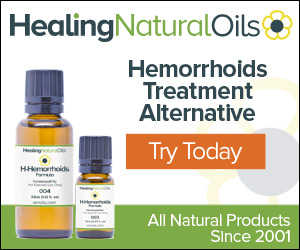There are many over the counter medications sold for the treatment of hemorrhoids. They work by treating the symptoms such as discomfort, pain and itching, which means the area is not as irritated and inflamed allowing it to (hopefully) sort itself out without any further treatments.
The products can come in the form of ointments, creams, gels, suppositories, foams and pads. The ointments, creams, gels can be applied to the outside of the anus or alternatively they can be inserted into the anus via a finger or a ‘pile pipe’ (a special tube that can be lubricated, inserted into the anus and applied. No one form has any distinct advantage over the other external medications are generally just as good as internal ones. It is down to personal preference as to which is used.
There are several types of over the counter medications available to treat hemorrhoids. Astringents reduce swelling of the affected tissues by shrinking them down while decreasing mucous and other secretions. While they do not relieve pain they do lessens symptoms such as inflammation, itching and burning. The most commonly used astringents used for hemorrhoids are calamine and witch hazel and zinc oxide.
Protectants reduce inflammation by forming a thin, protective barrier over the skin and mucosa membrane within the anus. They also prevent the topper most skin layer from losing water. Many protectants are used in over the counter hemorrhoids medications, including aluminium hydroxide (in gel form), glycerine (water solution), cocoa butter, mineral oil, kaolin and petroleum.
Vasoconstrictors are a group of hemorrhoid medications that work by causing blood vessels to constrict reducing swelling. They also act as a slight anesthetic, meaning that they relieve itching, irritation and discomfort of the anus. Vasoconstrictors are not recommended for people with blood pressure problems or heart disease as they may cause side effects.
Local anesthetics do exactly what they say on the tin: They reduce sensations by blocking nerves from conducting messages of pain, burning itching etc. This means they provide relief from the symptoms of hemorrhoids. Local anesthetics are used for external hemorrhoids as these can be more painful than suffering from them internally.
Keratolytics act to dissolve skin flakes and scales which them enables tissues affected by hemorrhoids to better absorb other topical creams used to combat the condition. Keratolytics lessen itching and irritation and can be found in Alcloxa and Resorcinol.
Finally antipruritics provide a temporary relief from the various irritating and persistent symptoms of hemorrhoids by distracting the mind’s perception of these sensations. Some well known and widely used antipruritics include menthol, juniper tar and camphor.
If over the counter medications are relied on for more than two weeks it is strongly recommended that the patient discontinues use of the product and returns to the doctor. The use of stronger more targeted prescription medications may be needed, and chronic hemorrhoids may require surgery or some other form of intervention.


